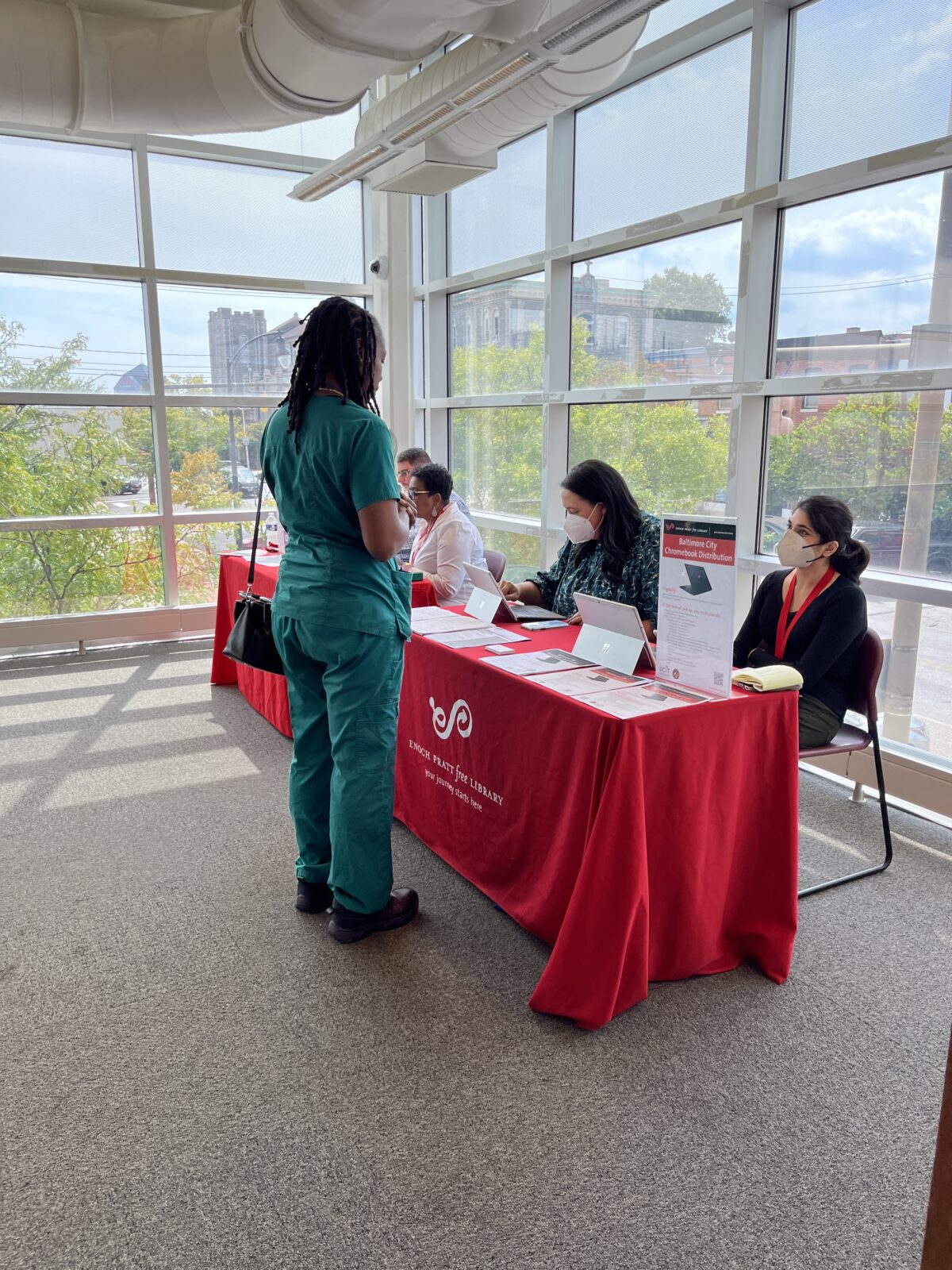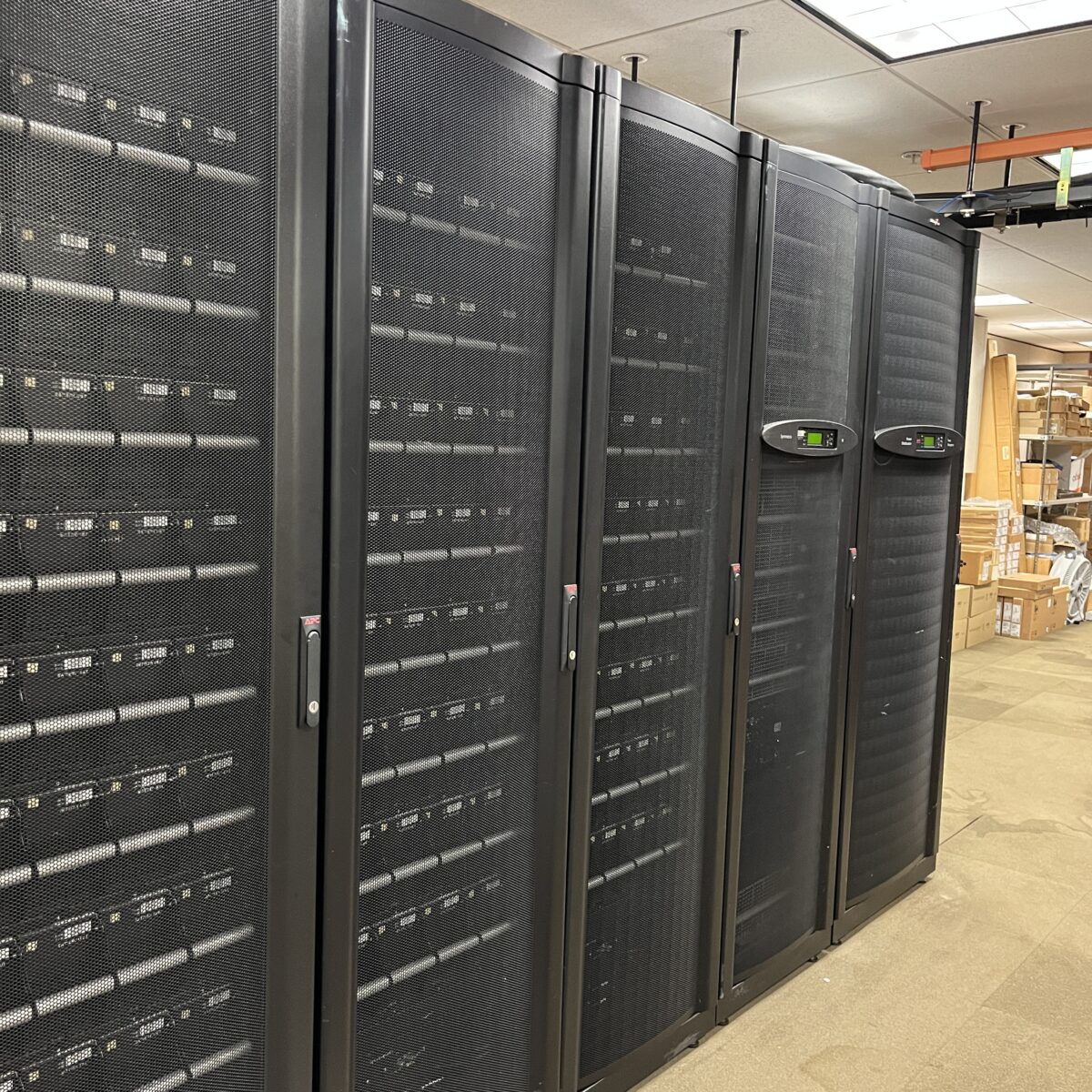It would be about 100 years before the Enoch Pratt Free Library, which began as a gift to promote social change, would see the dawn of its digital age — and a reimagining of libraries’ traditional purpose.
Pratt’s technological history
In 1965, concurrent with the introduction of the first computer using integrated circuit technology, the Pratt Library’s central branch underwent a reorganization. This shift involved the merger of the former Business and Economics Department with the Industry and Science Department, resulting in the creation of the present-day Business, Science, and Technology Department.
The library system, which now encompasses more than 21 branches, procured its first microcomputer hardware in 1982 and dubbed it EPIC, short for “Enoch Pratt Information Counselor.” The choice of this name, akin to the renovation of its central branch on Baltimore’s historic Cathedral Hill, was shaped by community input.
By the mid-2010s, renovations at the central branch brought tech upgrades. Now, you can find public computers, 3D printers, Cricut machines, mobile hotspots, computer training, live chat with librarians, outdoor Wi-Fi, Chromebooks for borrowing or distribution and even microfiche — a precursor to cloud-based storage — at most Pratt Library branches today.

Managing technologies at a non-tech entity
Candice Zhu holds the role of Chief of Digital Transformation in the library’s Systems & IT Department. Her responsibilities encompass web development, catalog development, data analysis and training. Zhu’s colleague Shane Williams serves as the Chief of End User Services, with oversight from the help desk and engineering teams.
Williams and Zhu, whose current favorite books are “The 48 Laws of Power” and “What Got You Here Won’t Get You There,” respectively explained that beyond their community digital services and training efforts, they play a role in offering internal tech support to library staff. They highlighted that the technology field has a “lot of jobs available” and there is a “growing need.”
“So when it comes to the technology landscape, of course, you know, tech is very much a hotbed,” said Williams. “Everybody wants to get into tech. There are a lot of jobs available. I would say, because, you know, technology’s changing at such a fast rate.”
Skills and training
Williams mentioned the demand for cybersecurity, software development and application development skills, which are vital for Pratt’s IT department. Williams, who attended ITT Technical Institute in Baltimore County before its closure, noted that Pratt is expanding its Microsoft Azure cloud computing identity. Similar to Willams’ credentials, aspiring technologists may benefit from programs and certifications like CompTIA A+ or a Google IT Support Professional Certificate (offered by programs like Per Scholas) to prepare for roles within Pratt’s IT department.
Zhu, a Towson University alum who started as a programmer and coder, highlighted the relevance of on-the-job professional growth learned. She cited how during the pandemic, she and her team learned that although we rely on the digital world more than ever, people don’t actually have the tools to do that.
“We’re trying to develop an ongoing training schedule for our staff,” Zhu said. “So any of the technology or tools used, that we use, for our staff to use to better do their day to day job. We’re trying to provide that ongoing and recurring training for them to sign up.”
Zhu said the Pratt Library is investing in a new learning management system for its internal staff. This comes in addition to programs like SolarWinds, Office 365, Sirsi, Localist and Smart Access Manager the library system uses every day.

Ultimately, a blend of humans and technologies fuels Baltimore’s library system. Civic placemaking, a holistic approach to the development of public spaces, can make research and digital databases publicly accessible. Technical.ly tried it out by looking for journals on the history of the Pratt, and I agreed with both Zhu and Chief of Marketing, Communications and Strategy Meghan McCorkell’s assertion about making research “sexy.”
“I mean, the word ‘database’ is not the sexiest thing you’ve ever heard,” McCorkell said. “I wish we could, like, find another word that people [might like]. But honestly, you can learn so many life skills using these free databases.”
“‘Database’ actually sounds very sexy to me, but whenever I hear ‘database,’ I think people are talking about SQL [Structured Query Language] or Oracle,” Zhu added. “It means nothing about notes. So I — actually, this is my first library job. So I had no idea what that means. … No, it’s like the Research Repository. Let’s just put it that way.”
For a choice debatably as important as the choice of technology and skills important to the Pratt: When given options between snowballs, crabs or a visit to the koi pond in the library’s children’s department, Zhu opted for snowballs. Williams went for crabs or crabcakes while McCorkell, who usually favors crabs, ranked snowballs as a close second, with a visit to the pond immediately after.







